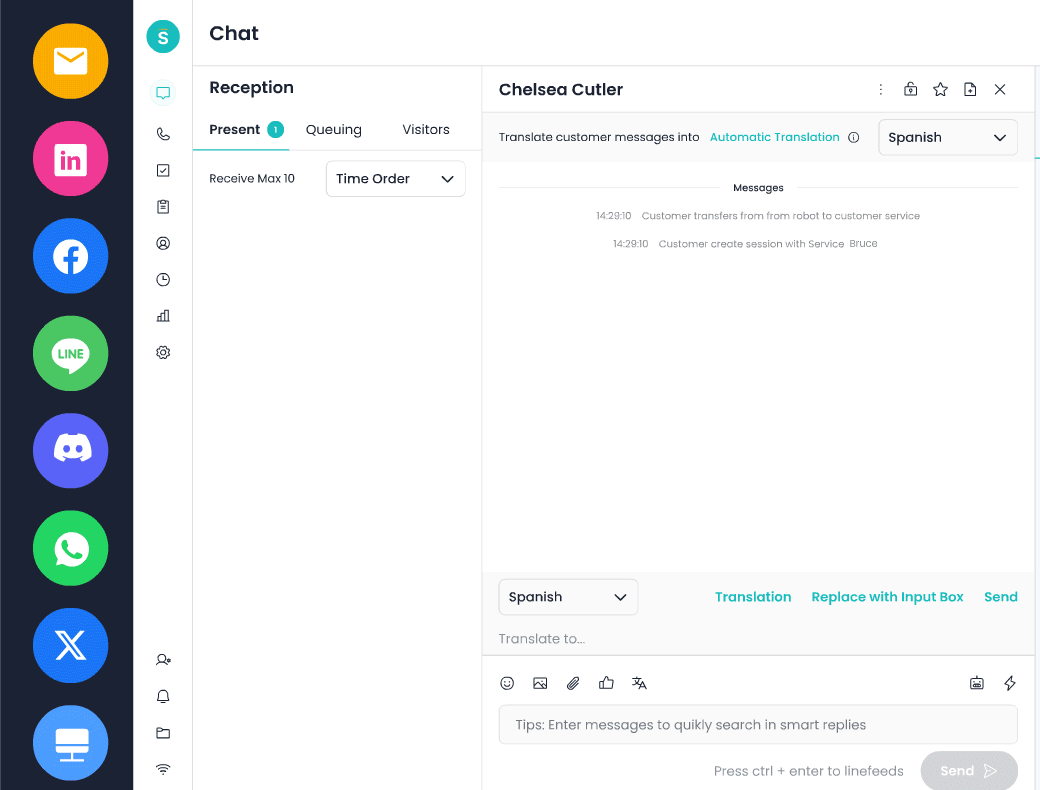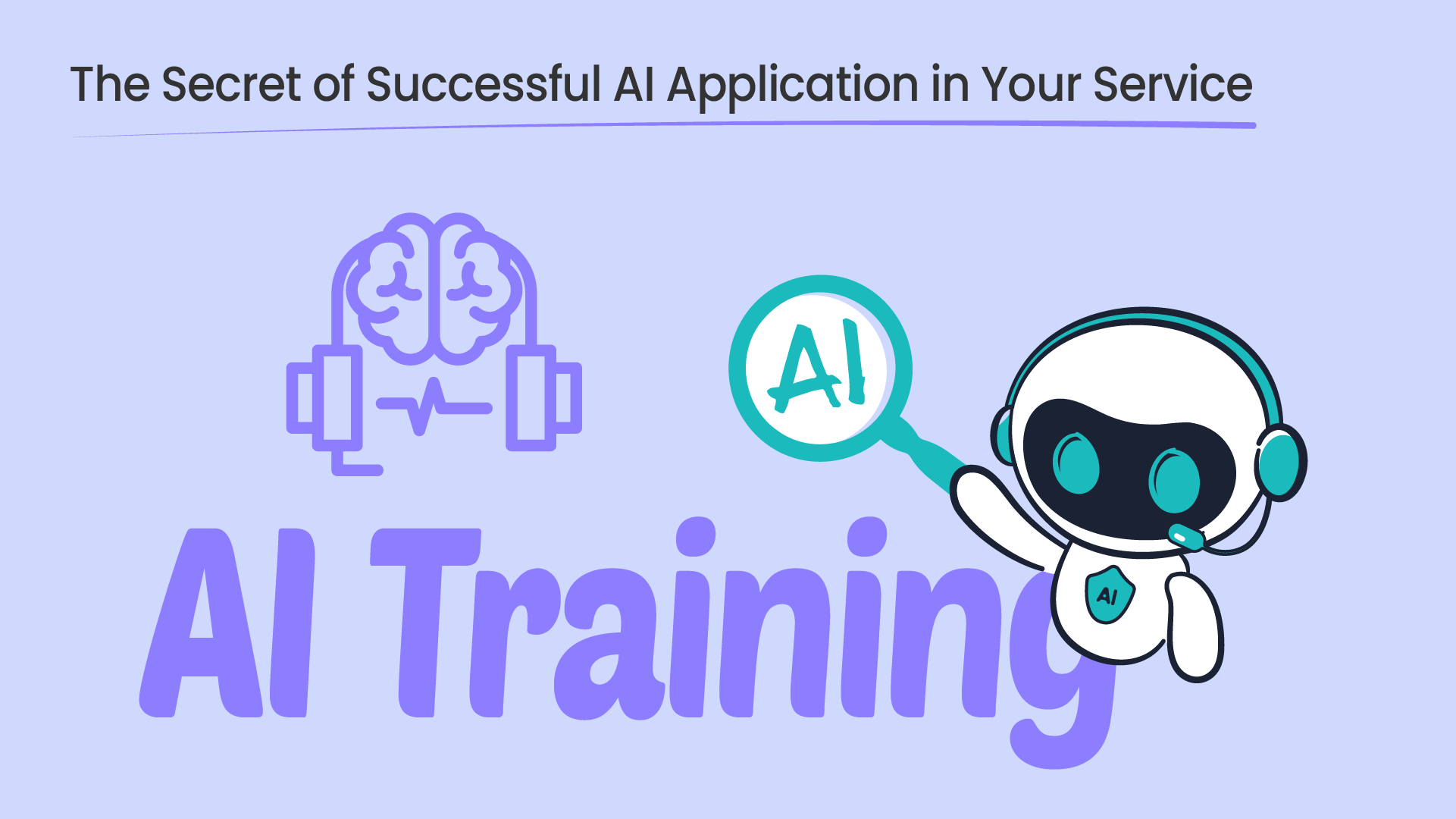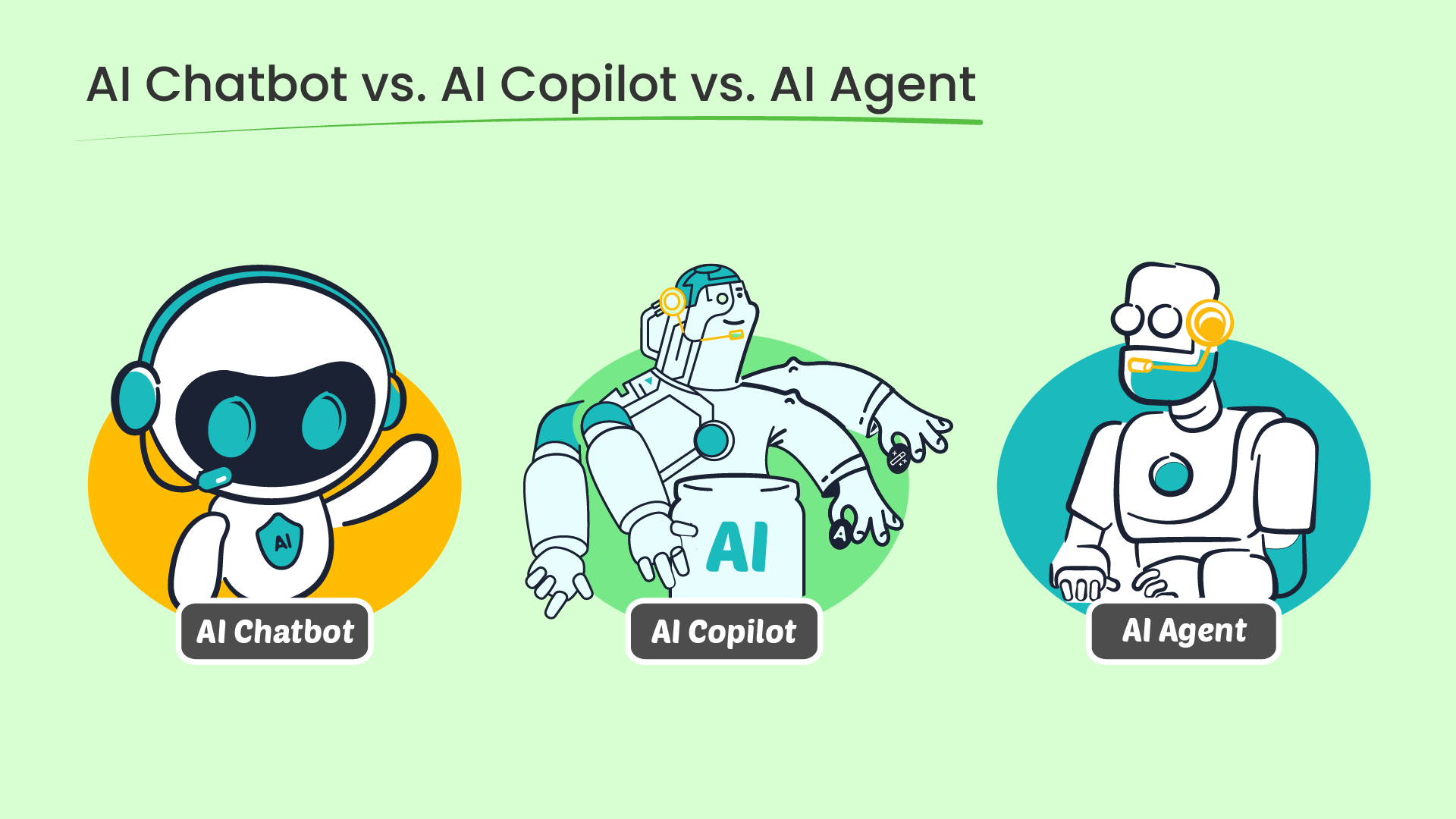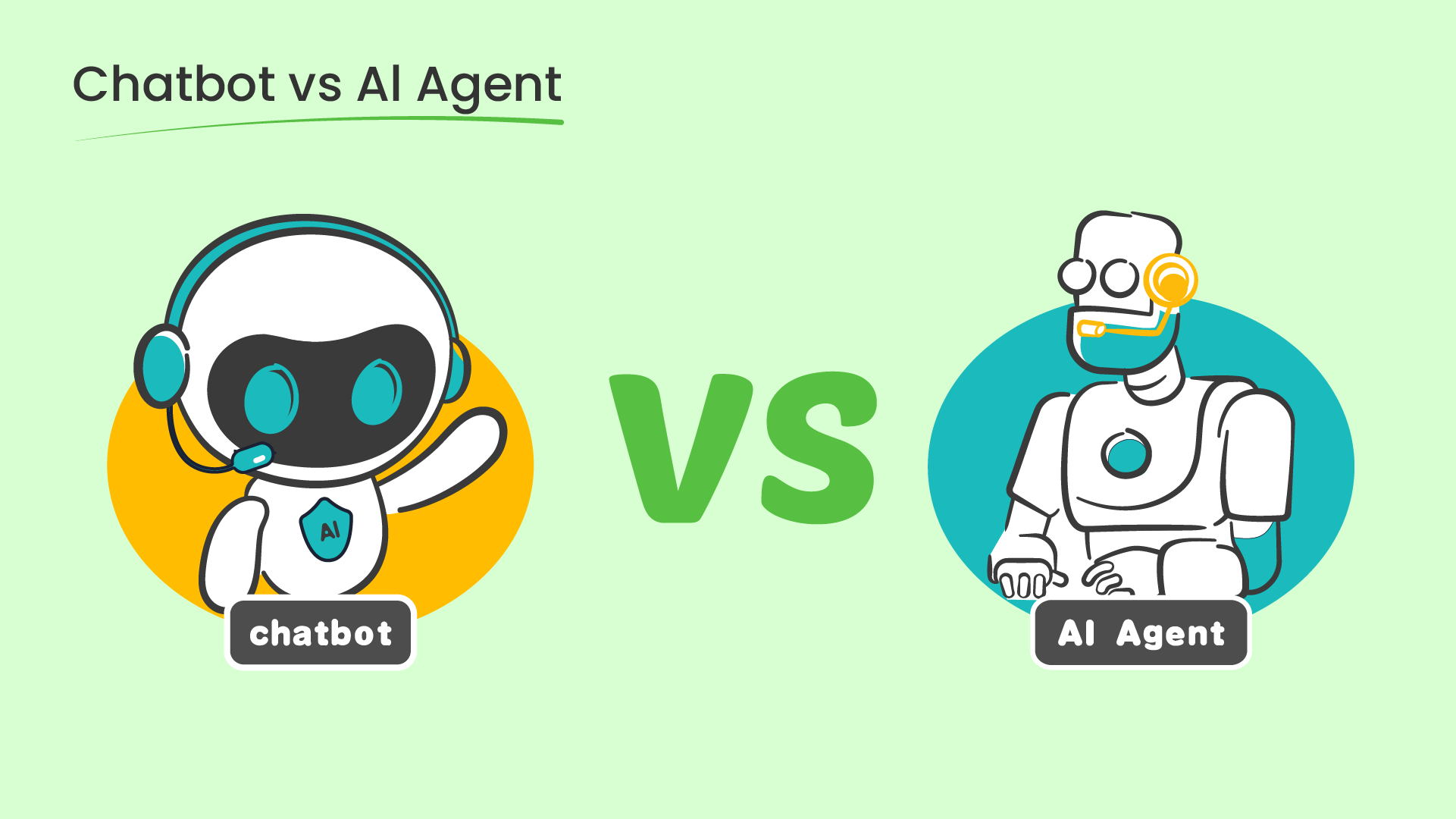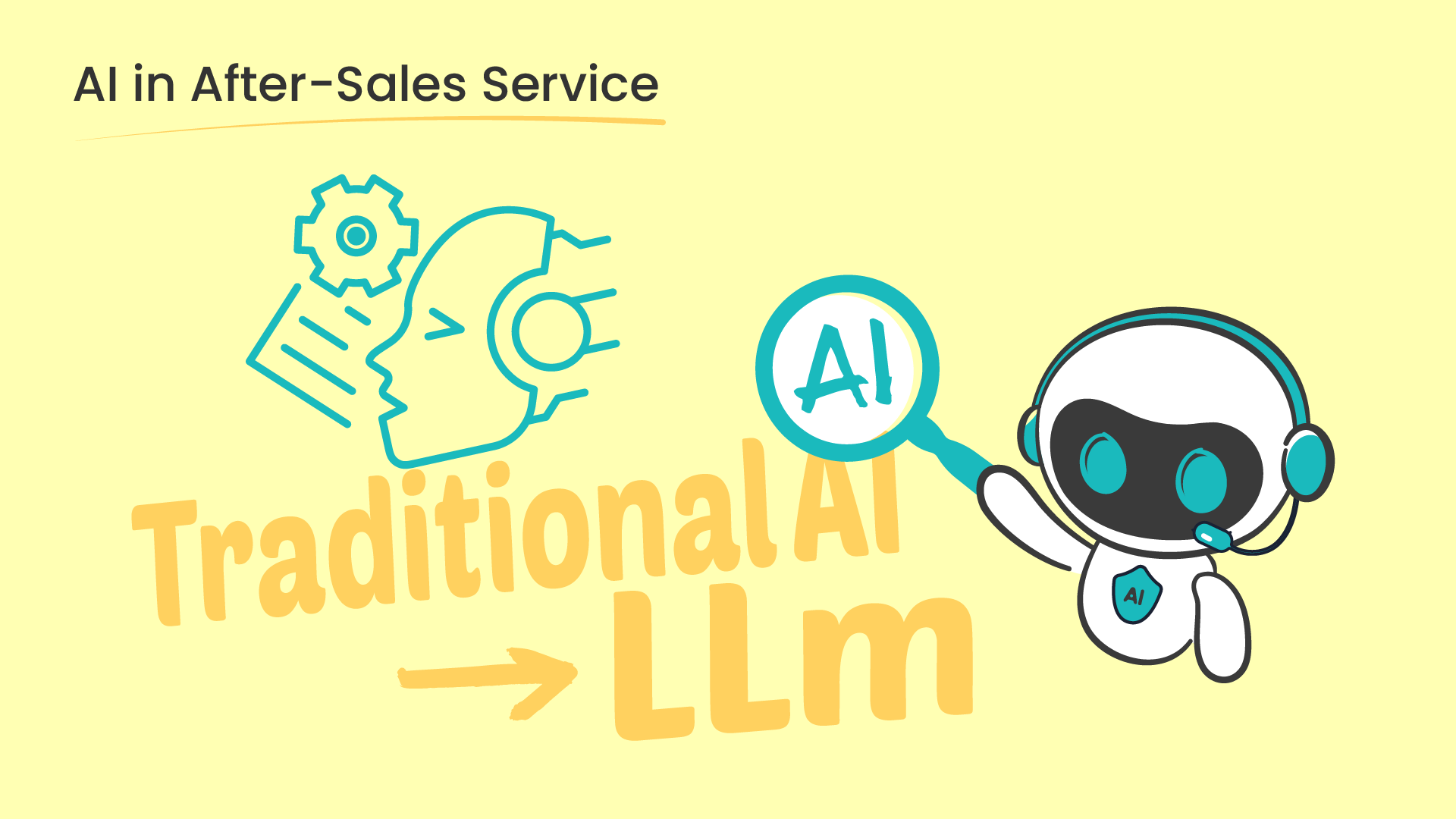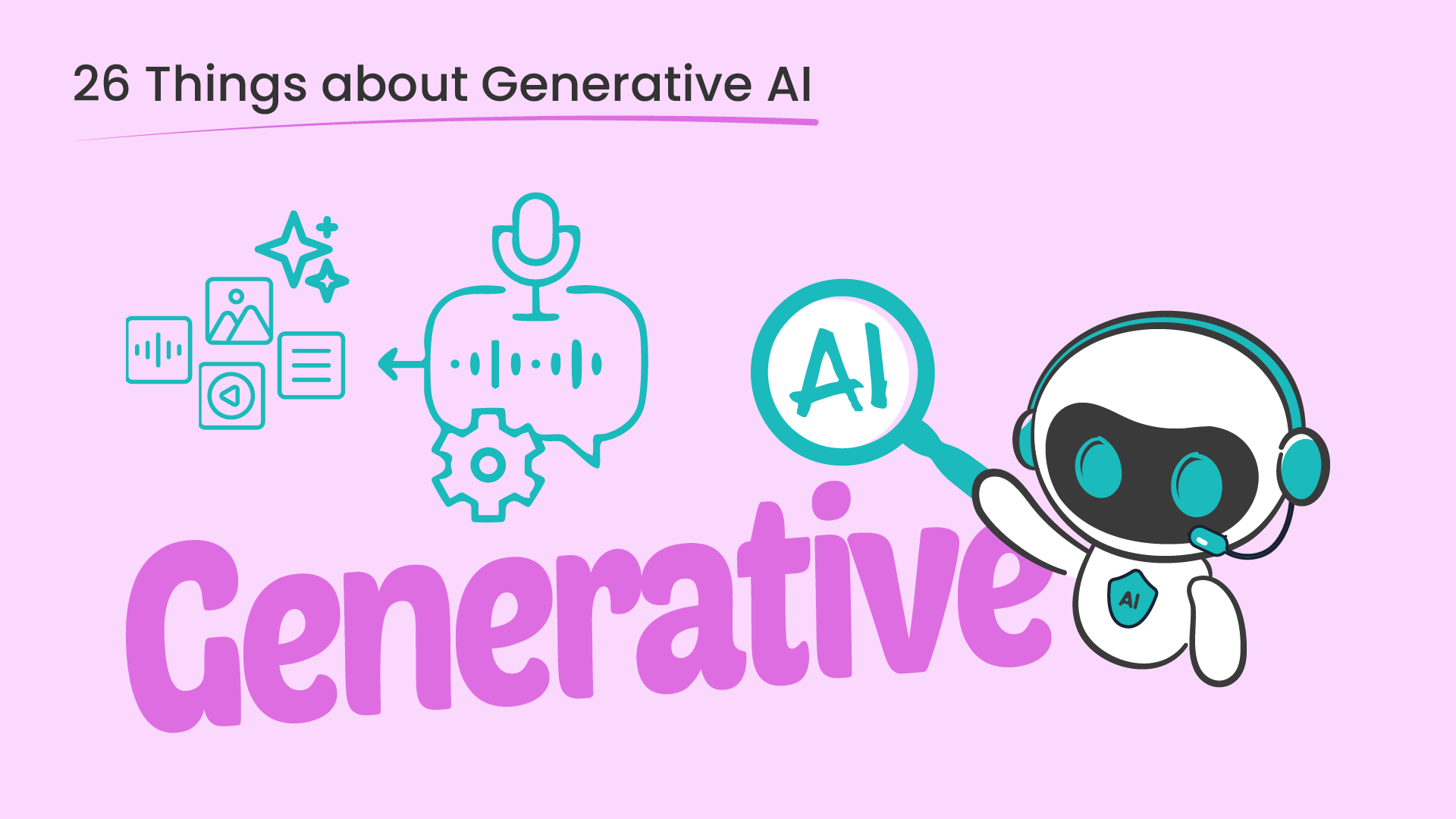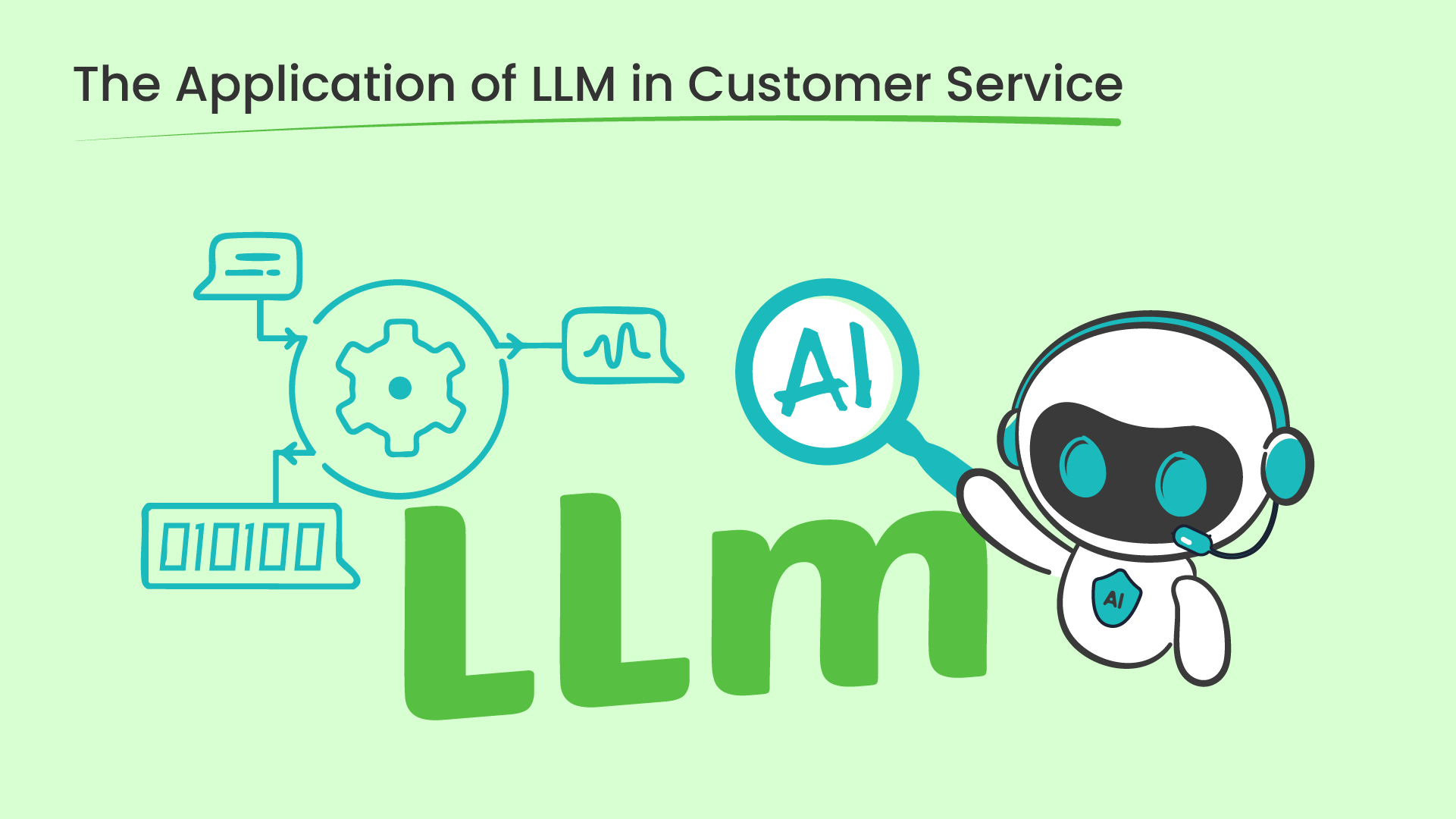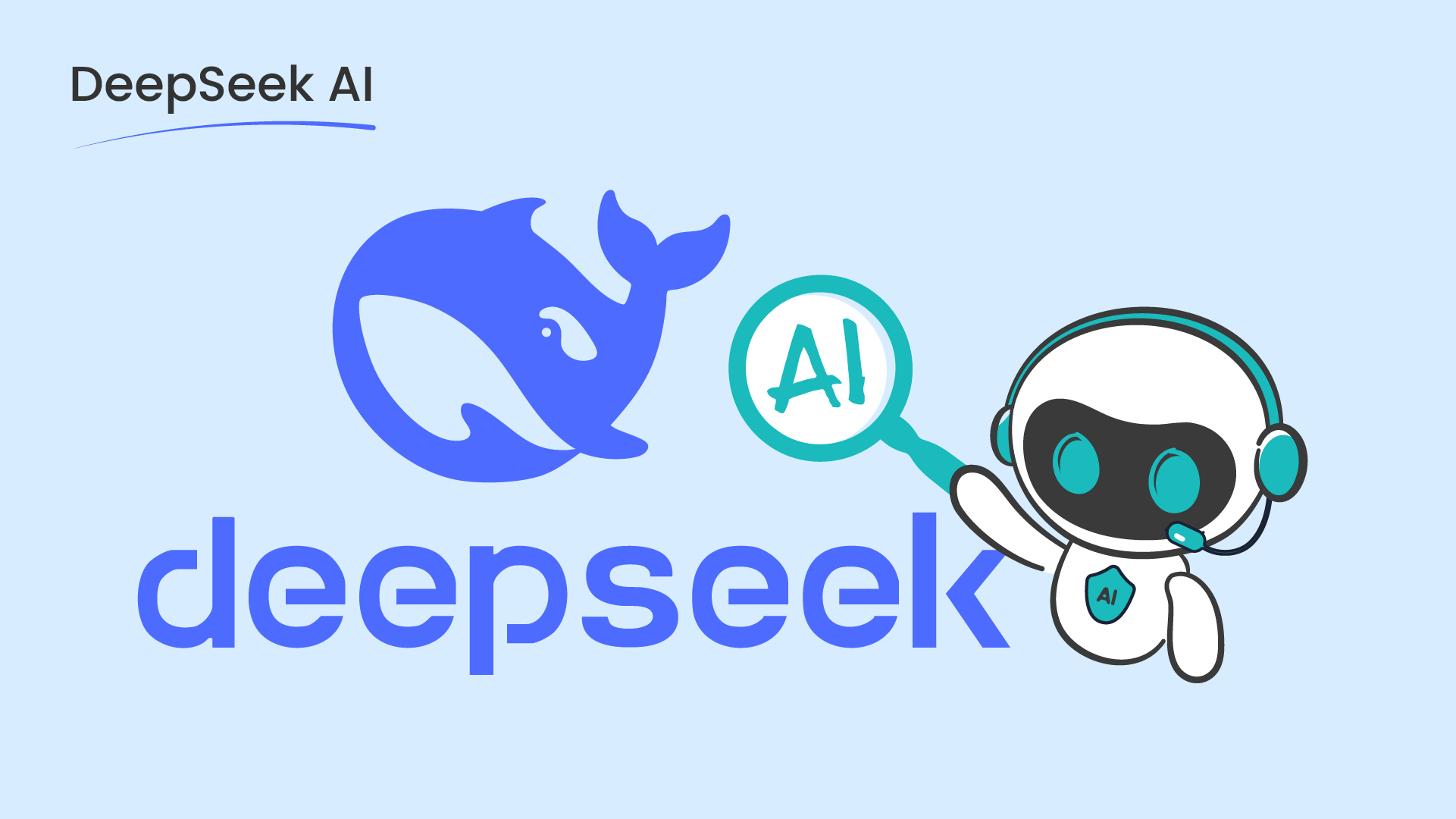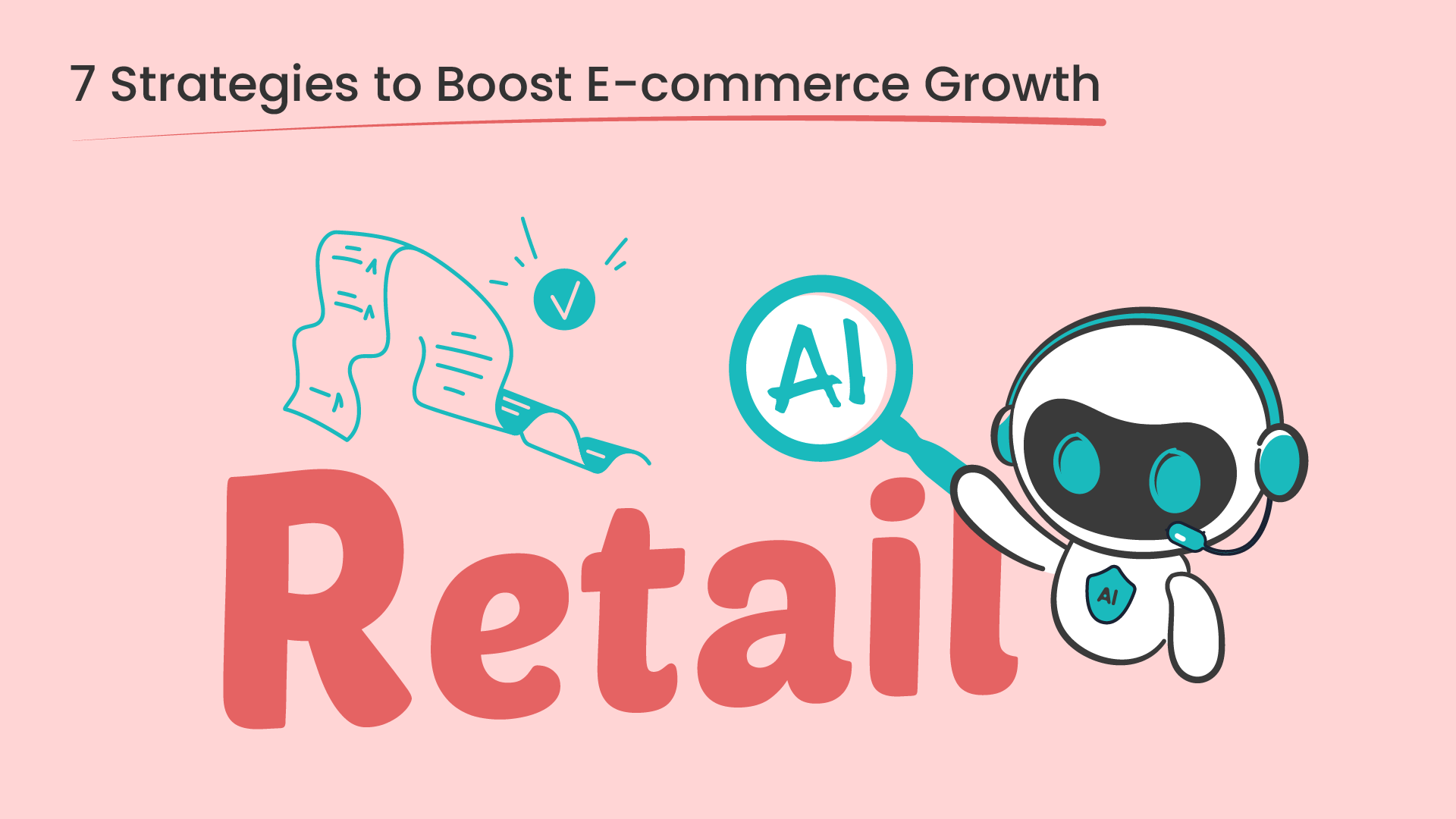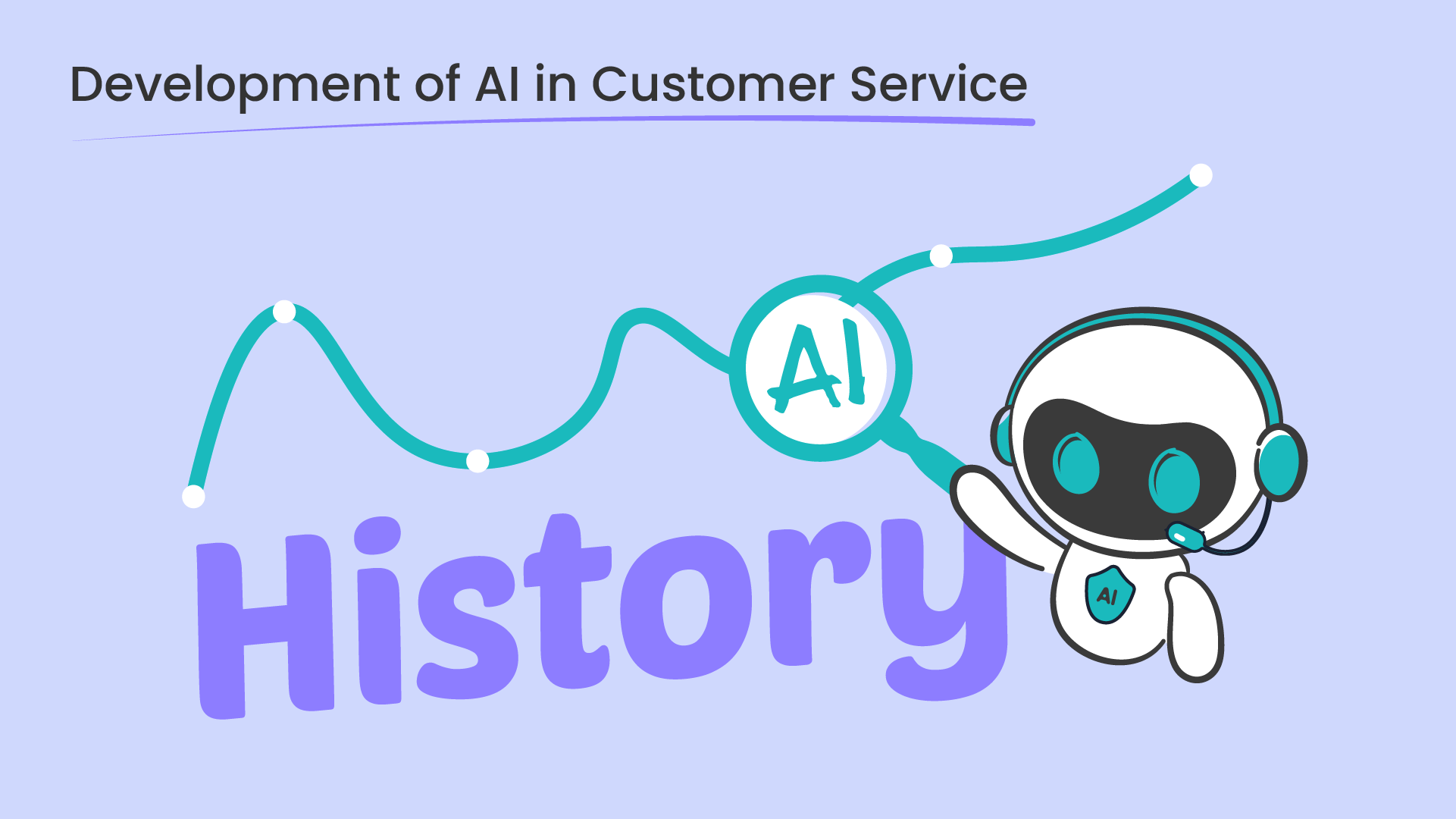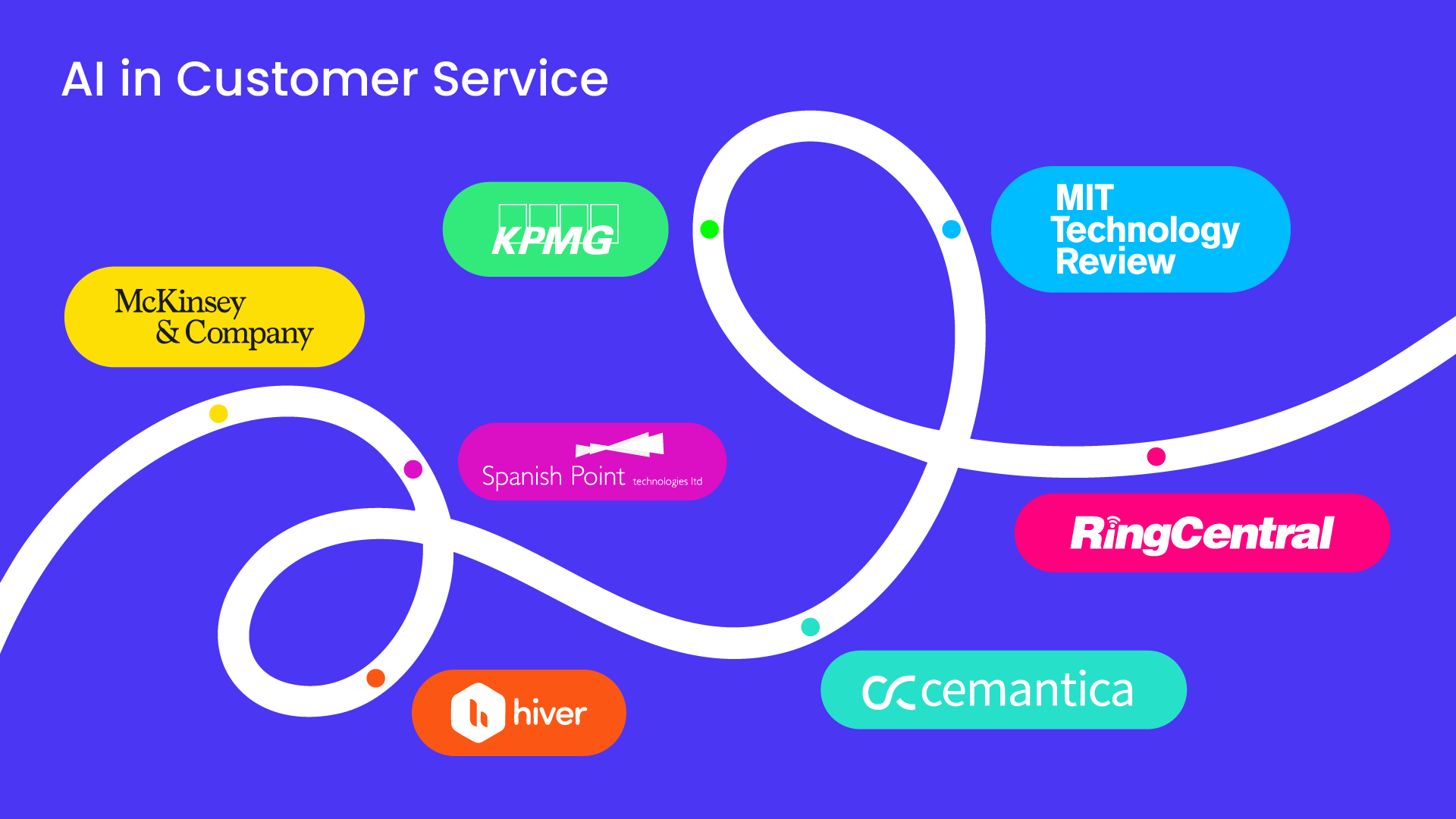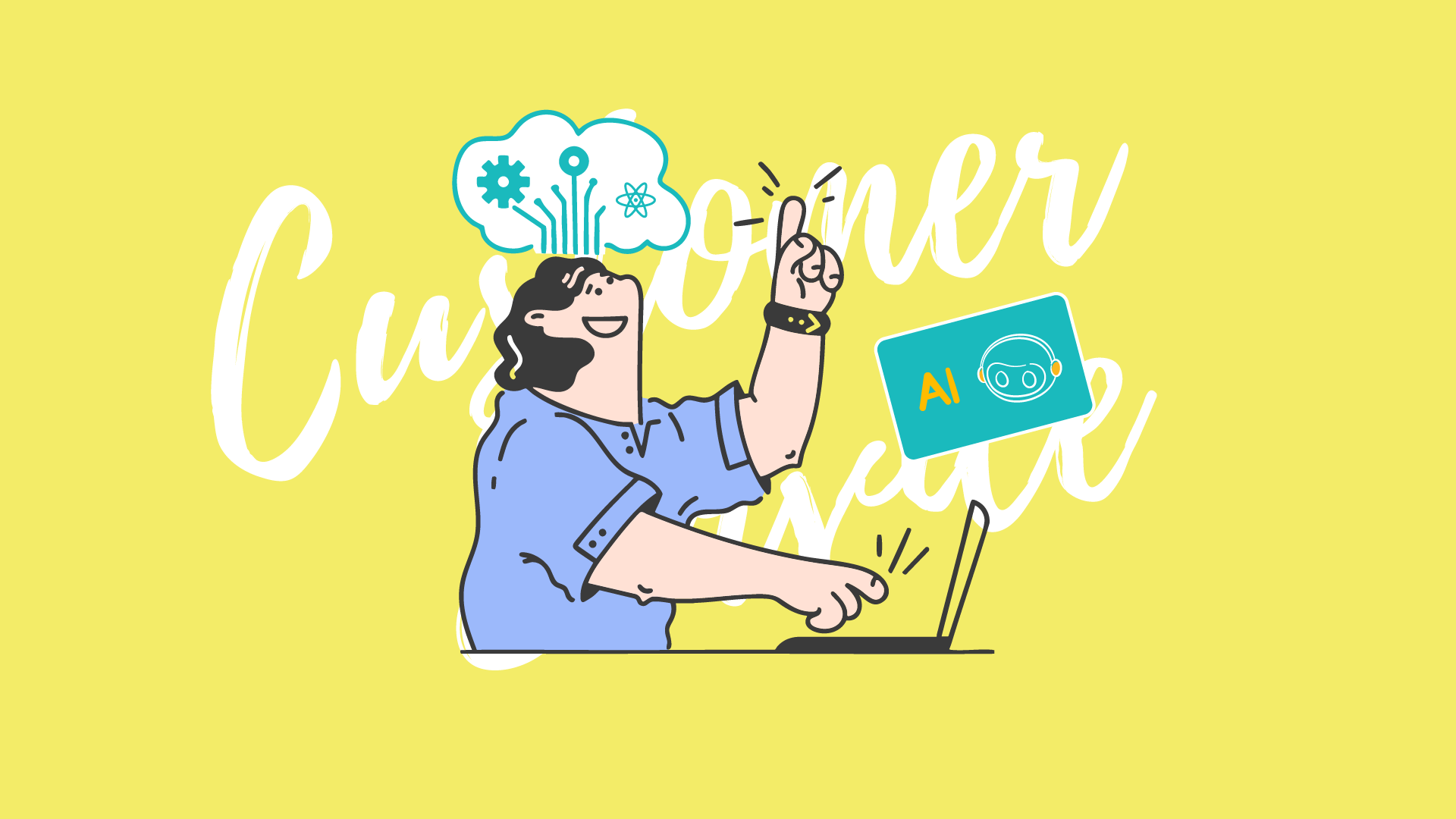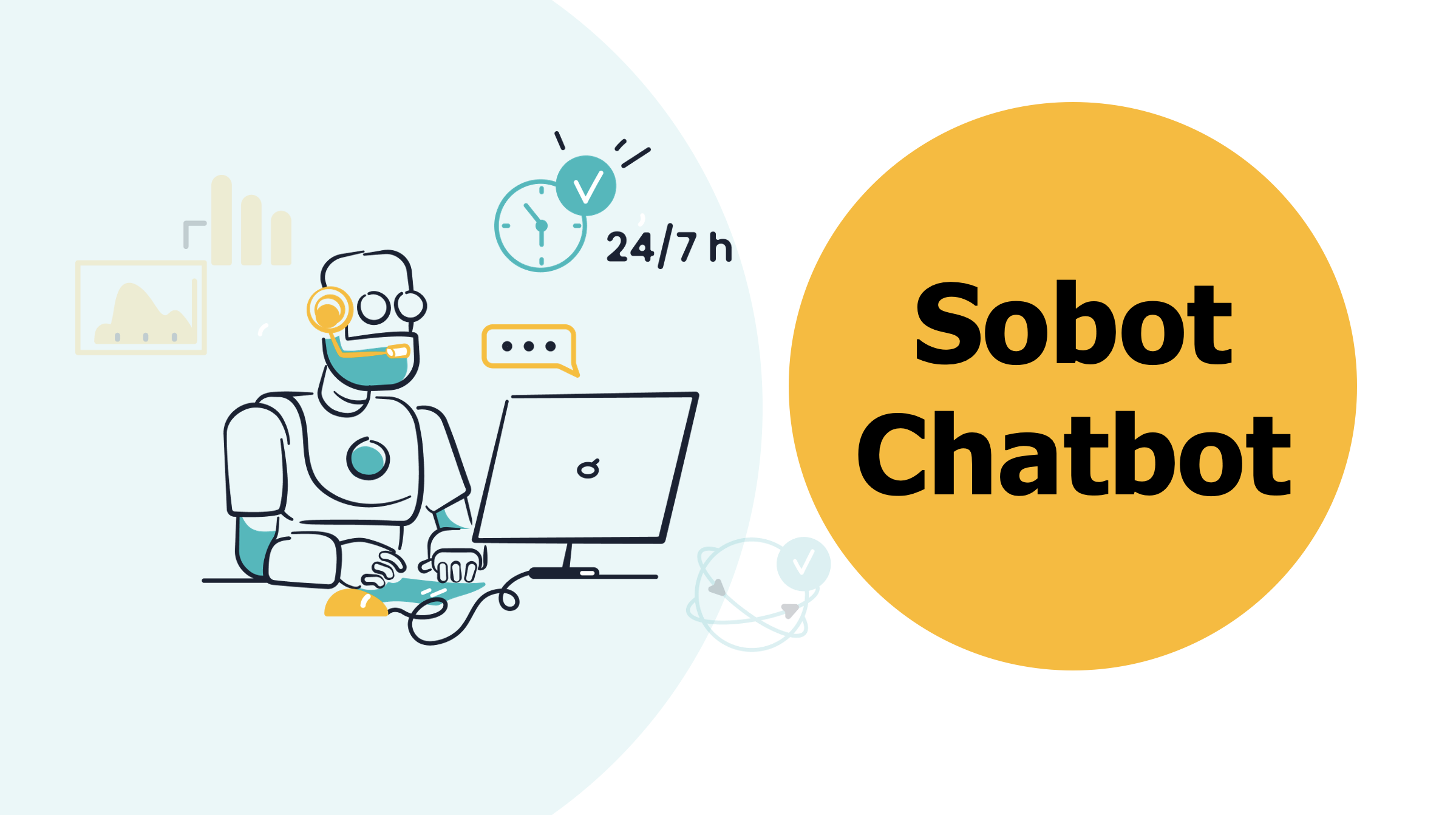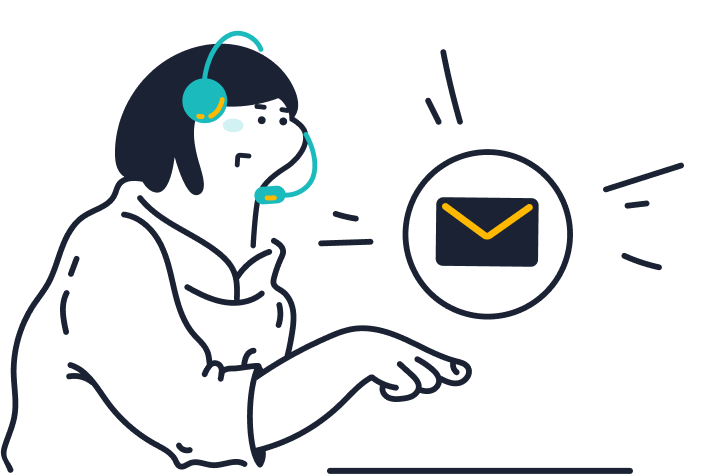Over the past year, AIGC has swept across various industries. AI has truly evolved from a “concept” to a “reality”. As the application of AIGC in the customer contact has garnered significant attention, an increasing number of businesses are contemplating the role and value of AI throughout the entire customer contact journey based on the actual effects.
More and more enterprises are gradually realizing that new AI technologies can bring about tremendous innovation, which cannot be achieved with technology alone. If not supported by “AI training” that is well-matched to real business and scenarios, the effectiveness of new technologies will be greatly reduced.
Therefore, it’s important to know the core value and actionable methods of AI training, which is exactly what this article will discuss. From strategic insights to implementation, this article tells about Sobot’s performance in AI training, helping businesses and customer service teams overcome core challenges like “lack of intelligence”, “poor interaction”, and “training difficulties”.
The Key Role in AI Training: AI Trainers
AI training is highly demanding and heavily depends on human input, thus creating a new career — the AI trainer.
AI trainers are dedicated to making the system more intelligent by doing tasks like data annotation, interaction design, parameter tuning, process monitoring, and strategy optimization. They are essential for applying AI technology in real-world businesses and scenarios.
AI trainers’ main job is to understand a company’s business knowledge and processes. Through configuration, process monitoring, and strategy optimization, they continuously enhance the intelligent chatbot’s capabilities to make it “smarter”.
In a nutshell, AI trainers serve as the teachers for AI. Through ongoing training and fine-tuning, they make AI models smarter and perform better in independent problem – solving.
Being a good AI trainer demands not only professional skills but also diverse industry-specific knowledge and experience. The role has a high entry barrier and requires high training costs. So many companies don’t have their own AI trainers, which often leads to under-performance of their AI systems.
But if providers could offer “AI training” services along with AI tools, businesses’ problems would be easily resolved.
That “tools + services” mode is exactly what Sobot provides.
Sobot’s “AI trainer team” has been established for several years and already become mature. The team includes computer science and technology experts, as well as industry – experienced consultants and customer service specialists. Having served hundreds of businesses, they’ve accumulated rich experience and developed a “training methodology” for typical business scenarios across industries.
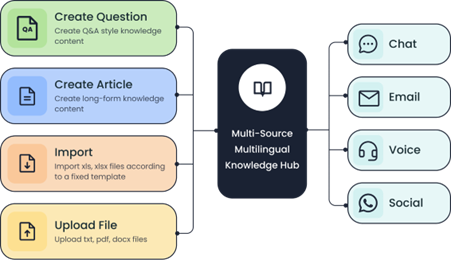
With Sobot’s professional AI trainers, you no longer need to worry that AI doesn’t know your business well enough. Their knowledge and experience will truly help businesses effectively adopt and fully utilize AI technology.
Strategies, Practices and Insights: What Can Sobot AI Training Bring to You?
AI training is a novel field, much like learning a new skill. It requires both a broad perspective to absorb new ideas and substantial practice to gain hands-on experience. Therefore, let’s focus on three core dimensions—strategies, practices, and insights—and provide you with an easy-to-understand guidance.
Strategies to Make AI Training Easier
Admittedly, pioneering AI training is often like feeling one’s way forward. Yet, in practice, there are some established rules to follow. In customer service, AI trainers, leveraging their understanding of business operations and processes, employ methods such as sampling analysis, AB test, and PDCA to train the AI chatbot in several aspects, including the cold start and operation of knowledge base, multi-round dialogue building, and script design. The goal is to continuously enhance the chatbot’s service and marketing capabilities.
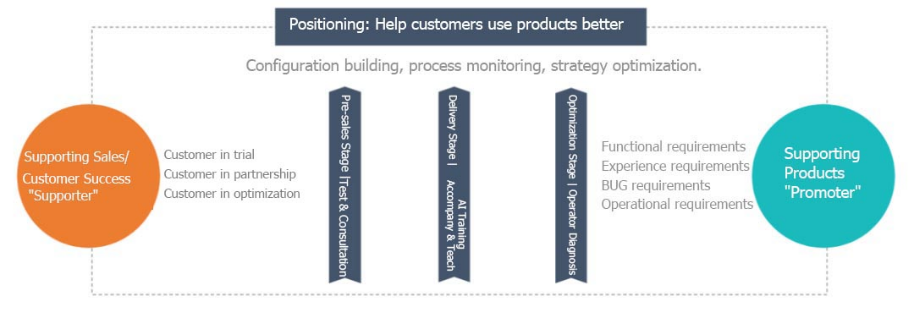
To better suit different companies’ AI training phases, Sobot’s AI trainers offer phase-based in-depth services. The process is divided into two stages: the initial knowledge base building and the chatbot operation optimization. They master application strategies in multiple aspects, such as standard questions, similar questions, question classification, answer design, and question recognition. This approach clarifies core issues and methods, enabling quick start of AI training.
Customer Practices for Learning Others’ Success Experiences
Sobot’s AI trainer team has supported over 200 clients across industries like retail & ecommerce, insurance, finance, and gaming, witnessing significant improvements in their chatbot-related metrics.
For example, in retail consulting, after about two weeks of AI training, the chatbot’s direct response rate rose by approximately 20%, and the independent reception rate stayed above 60%, with further growth during subsequent optimization.
These case studies allow both AI trainers and businesses to learn from others’ successful stories, laying a solid base for further training and optimization.
Unique Insights of “AI Trainers” for Businesses’ Reference
It is undoubtedly that AI training will usher in unprecedented development in the coming years, with systematic methodologies emerging in terms of technology application, talent cultivation, and market adaptation.
Sobot aims to lay the groundwork for these methodologies by continuously sharing the observations and insights into various aspects of AI training in customer contact, assisting businesses in better grasping industry development trends and making timely adjustments. This broadly includes:
1. Interpretation of application scenarios: Provide viewpoints on the key elements where AI creates value according to distinct characteristics of different industries and scenarios, and combine practices to produce AI training methodologies for specific scenarios or industries.
2. Insights into industry trends: Give Sobot’s judgment on the development of the AI training field through multifaceted analysis of technological levels, application capabilities, market policies, etc., ensuring businesses to stay ahead.
3. Analysis of talent demand: Study the common structural model of AI training talent in enterprises to provide a basis for enterprise talent cultivation.
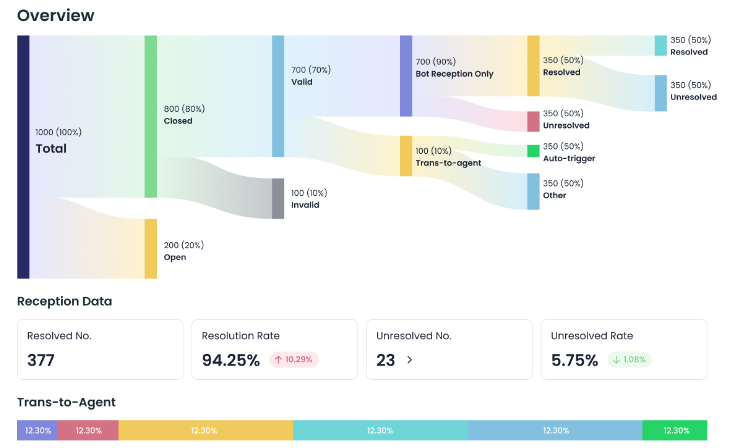
Conclusion
At this critical stage of AI’s shift from theory to practice, enterprises face the core challenge of “easy technology access but hard-to-achieve intelligence”. Sobot, via a “tools+services” dual- track model, uses its professional AI trainer team to transform industry know-how into reusable training methodologies. This helps clients overcome pain points like low response rates, poor interaction, and difficult training, thus unlocking AI’s real commercial value.
Act now to let AI drive measurable growth for you—come to Sobot for a free trial of AI customer contact products, and see how Sobot AI training can benefit you.
